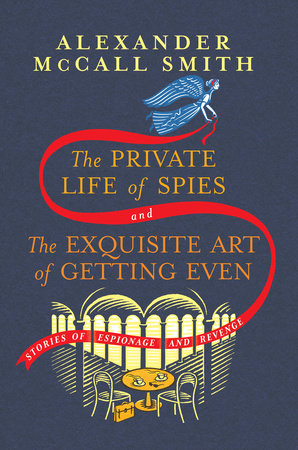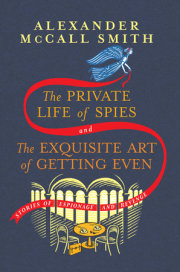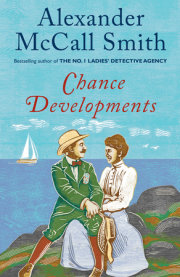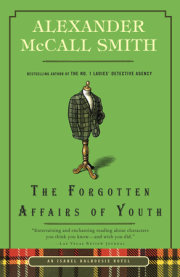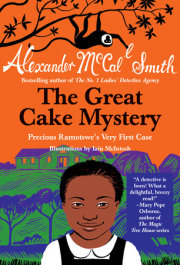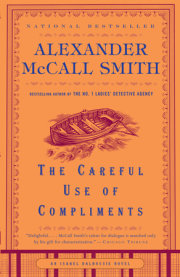Nuns and Spies (England, 1943) Conradin Muller was an unusual spy. He was recruited in Hamburg in June 1943, much against his will, and sent on his first, and only, mission in late September that year. He failed to send a single report back to Germany, and when the war came to an end in May 1945, he fell to his knees and wept with relief.
“I never wanted any part of this,” he said to his friend, Sister Cecilia. “This whole awful, disastrous mess. Never.”
She knew what he meant, and she believed him. “There, there,” she said, patting his wrist, as she often did when things became too much for him. “There, there, dear Conradin. All over now. The Lord works in mysterious ways—few can doubt that—but He usually achieves the results He wants. Of that, there can be no doubt whatsoever.”
“I have much to thank the Lord for,” he said to Sister Cecilia. “For this place. For you and the others. For everything that happened to me. I am constantly grateful.”
And he was. His gratitude, in fact, knew no bounds, and he reminded himself each morning of his great good fortune. He had been a spy in wartime, and had it not been for the kindness of Cecilia and all the other sisters he would have met the grim fate that such spies meet. He owed them his life. He owed them everything, in fact, and one day, he hoped, he might be able to repay them. They were kind English people, and he would not hear a word against the English. Not one word.
Until that fateful day in 1943, Conradin had lived a blameless if somewhat dull life. He was the only son of Gustav Muller, the owner of a small printing business, and his wife, Monika, a piano teacher and an invalid. Gustav was an alcoholic, and unreliable; Monika could walk, but could do so only with difficulty; she relied on Conradin to do the shopping and the housework. When not helping at home, Conradin, who was naturally gifted when it came to foreign languages, had a part-time job teaching English to science students at the university. He also taught occasional classes in Spanish and French, although English was his main subject. He had studied for three years at King’s College, London, before the war, and before returning to Germany had taught for two years at a boys’ boarding school in Devon, a place of bizarre traditions and minimum academic standards that went bankrupt when Conradin was on the staff. These five years in England meant that he felt perfectly confident in the language, a fact that unfortunately caught the attention of a local Abwehr colonel, whose brother-in-law was a professor of physics at the same university at which Conradin taught.
On the outbreak of the war, of which the Muller family thoroughly disapproved, Conradin was thirty-eight years old. Men of that age were being taken for military service, and Conradin was interviewed by the local recruiting office. The interview, however, was conducted by a retired army officer whose wife was distantly related to Conradin’s mother. This relative had explained to her husband that Conradin was the most dutiful of sons and that if he were to be taken by the army, Gustav would be unable to look after Monika. Gustav’s own health was shaky—his drinking had eventually taken its toll—and he, like his wife, relied on Conradin’s help. The officer himself was sceptical, but he dared not contradict his wife, and Conradin, to his considerable relief, was duly exempted from enlistment.
This exemption was to prove short-lived: when the colonel discovered that Conradin spoke perfect, idiomatic English, he summoned him to his office and informed him that he was happy to report that his offer to work for German Intelligence had been accepted.
“But there must be some misunderstanding, Colonel,” protested Conradin. “I have not offered to do anything.”
The colonel fixed him with a steely gaze. “It would be very unwise to contradict my recollection of events,” he said. “I take it that you understand me?”
Conradin swallowed hard. He had understood only too well. “What do you want me to do?”
“You are to be trained as a field agent,” said the colonel. “You will undertake a three-month course, during which you will be shown how to behave like an Englishman.” The colonel laughed. “You have to be able to drink tea in a special way if you are to avoid detection in England. In a very effeminate way. Like this.” The colonel lifted a cup with his little finger extended, in a mockery of affectation. “See?”
Conradin nodded dumbly. This was the end. He would be captured and that would be the end of him. He had no future now—none.
“And you will be thoroughly trained in the operation of radio,” continued the colonel. “Have you ever operated a short-wave radio?”
Conradin shook his head.
“It is most important that operators should understand how these things work,” said the colonel. “Not only are there issues of radio wave propagation, there are matters connected with antennae. The correct length is vital for a functioning antenna, you know. There is mathematics involved in that.”
Conradin swallowed again. Was it best to be blindfolded when you faced a firing squad? Or could you simply close your eyes?
“So,” said the colonel. “That’s settled, then. The orderly has prepared the papers.”
He clicked his fingers and a uniformed orderly appeared. “Sign here,” he said. “And then here. And here.”
Conradin noticed the orderly’s fingernails. They had been bitten back to the quick. He shuddered.
“You are now enrolled in the Abwehr,” the orderly said in a low voice. “Congratulations.” His accent, Conradin noticed, was Bavarian. There was a faint whiff of beer. They were like that down there, he thought. They liked their beer-halls. Brutes.
Copyright © 2023 by Alexander McCall Smith. All rights reserved. No part of this excerpt may be reproduced or reprinted without permission in writing from the publisher.

